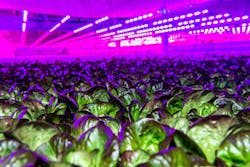Because moving toward true sustainability is such a heavy lift, it’s essential to have partners who can shoulder some of the burden.
“One of our primary missions is creating technology with purpose that aligns with mega-trends, and serves larger needs in society like addressing climate change,” says Matt Helgeson, head of sustainability for Siemens. “We were one of the first companies to set targets for carbon-neutrality, which we did in 2015, and committed to ramping up production and energy sustainability in our facilities and vehicle fleets, as well as holding suppliers to decarbonization requirements.”
To reach its sustainability goals, Helgeson reports that Siemens has adopted its Decarbonization, Ethics, Governance, Resource Efficiency, Equity and Employability (DEGREE) framework, which it also expects to generate long-term value. “For a corporation to have successful role in sustainability, it must be transparent about its successes and challenges, and share missions and targets, so everyone at every level can participate, including ourselves and our suppliers, customers and the rest of our supply chain,” explains Helgeson. “Consequently, we’re specific, intentional and exhaustive in our communications about what we’re doing, and standardized our reporting. This includes releasing a 180-page sustainability report each year, educating our staff on sustainability fundamentals and their role, and charting our progress. All of this is to make our sustainability efforts tangible and more doable by everyone.”
Growing greener
For example, 80 Acres Farms (80acresfarms.com) in Hamilton, Ohio, operates five indoor, vertical, eco-friendly farms in southwestern Ohio, and is fostering sustainable, healthy, traceable and more productive farming practices aided by automation, control and optimization hardware and software from Siemens, including its intelligent facility and energy management systems, and industrial automation technology. Working with the company’s technology subsidiary, Infinite Acres, Siemens supports the industrialization and scaling of the company’s proprietary Loop platform that encompasses crop management software and algorithms, environmental controls, robotics, and automation.
“Infinite Acres built the Loop platform through collaboration with best-in-class technology partners such as Priva, Ocado, and Signify,” says Tisha Livingston, co-founder of 80 Acres Farms and CEO of Infinite Acres. “Our new partnership with Siemens takes our collaboration and technology platform to a new level with the 360° approach across software and connected hardware solutions, and from digital twins to advanced controls.”
Siemens’ Smart Infrastructure division is providing power distribution equipment, while its energy and building management technologies in the farms monitor fire and life safety, security and power distribution systems on one interface. Siemens’ Digital Industries division will install industrial automation technologies and edge devices to automate the production line, while edge devices and HMIs monitor and update the farms’ control systems. Taking a deeper look into the growth processes, Siemens Digital Industries is in discussions with 80 Acres about how they can create a digital twin that simulates the farm, plant growth and production process to predict plant growth under diverse conditions as well as optimize future farms for growth and shipping.
“In just seven years, we’ve scaled from one R&D facility to a modular system we can deploy worldwide,” adds Mike Zelkind, co-founder and CEO of 80 Acres Farms. “Standardizing our technology and infrastructure enables our industry-leading technology to scale worldwide rapidly and effectively. By building a network of committed global partners like Siemens, we can feed tens of millions more people in a matter of years.”
Aided by digital twins, ML and AI
Looking to the future, Siemens’ R&D arm, Siemens Technology, is leveraging artificial intelligence (AI) and machine learning (ML) to develop an app that will optimize software to identify irregularities, avoiding adverse conditions in the plants.
In addition, to provide updated CO2 emissions data for materials and energy processes, Siemens Digital Industries Software division is collaborating with sustamize GmbH (www.sustamize.com) and its Product Footprint Engine software to provide their Teamcenter carbon footprint calculator. It lets users measure, simulate, reduce and track carbon footprints for their products early in the development phase, and manage those footprints at each level of the value chain.
“Sustainability starts with awareness, and understanding the impact you and your organization are having on the environment and people,” says Helgeson. “If you know the emission sources of your operations, then you can create a baseline of your carbon footprint and impact, establish targets for reducing them, and get to work on them. Plus, as new emission sources are identified, users can examine them, too. This keeps the whole process going, while transparency makes the process real and actionable, and lets companies engage with others that have similar commitments and targets.”
Sustainability series 2023
This article is part of the 2023 series on sustainability. Read more here


